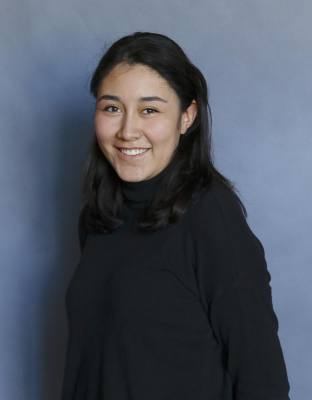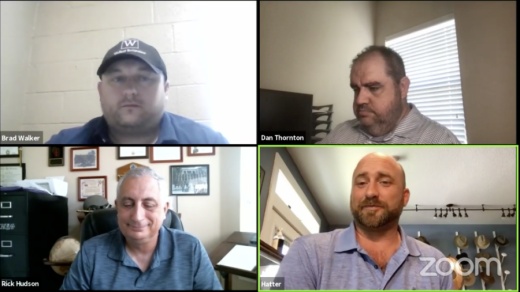During a virtual forum hosted by the Hutto Chamber of Commerce on April 12, candidates for Hutto City Council Place 2 spoke about how they would communicate with citizens and lead the city. The Place 2 candidates are Rick Hudson, Jimmy Pierce and incumbent Dan Thornton. The forum was facilitated by Brad Walker, owner of Walker Insurance.
Early voting for the May 1 election starts April 19 and ends April 27. Here are some of the questions and answers from the forum.
What is your long-term vision for the city of Hutto?
Rick Hudson: I think Hutto has an amazing level of potential. We just need to figure out what we, the 30,000 of us here, want it to look like. I personally think we could have commercial corridors that aren’t intruding into neighborhoods. I think we can have tourist draws and events; we’ve got the facilities to do that. We can have car shows and everything else out there at that giant parking lot at the amphitheater; we’re not utilizing that kind of thing, so we’re not getting the tourism dollars like we could be.
Jimmy Pierce: If you get some of the projects that have already been proposed and in the works done, it would be a good start, and they would drive growth for the future in order to make it to where if you lived in Old Town and you worked close-by, you wouldn’t need to go anywhere unless you wanted to. We also need ways to draw people in, to get them to come visit.
Dan Thornton: We are growing. Nothing is going to stop that. I want to see it continue; we just need to guide it and avoid some of the issues that we’ve had over the growth that we’ve had so far. We’ve had a lot of development come in bottlenecked by the same intersections with delayed plans to improve them. We need to be planning far ahead and getting our commercial out where it doesn’t impact the residents as much.
How does your prior professional experience make you the best candidate for the position for which you’re running?
Hudson: My prior experience—28 years in the military; held multiple leadership positions. I trained hundreds, if not thousands, of people, and I think I can use those skills to help facilitate communications between these existing groups, especially [the chamber], [the Hutto Economic Development Corp.], [the Hutto Community Development Corp.] and the charities. I know how to work as part of a team to make things happen, and I think I can bring that same mindset and those same tools out of my toolbox into council.
Pierce: My degree is in design layouts. I’ve worked with everything from small-scale projects up to large city layouts and amusement park layouts. Something that has always been a part of every job I’ve had has been the customer service side of things. I’ve always been in the position of problem-solving.
Thornton: I have a bachelor’s degree in electrical engineering and a master’s degree in computer engineering. I think a lot of what we have been missing from the council is some of the oversight and looking over deals and trying to figure out what happens when a deal goes wrong—what happens when the projections don’t work out. When you work in the engineering field, that’s part of life; that’s something that happens every day, where the best laid plans go to hell sometimes for things that aren’t foreseen. You need to know what your worst case scenario is. You need to know how you recover from it.
How will you bridge the fiduciary duties of your office and the practical application of leadership in order to bring the Hutto community together so that there is trust, confidence and competency?
Hudson: I think the first step of that is community involvement. If no one’s engaging council, and if council isn’t being responsive to the entire community, then the community is going to feel like they’re not being heard and that there’s stuff going on that they don’t know about. Clearing that up [and] being open with my communications with the community as a council member, I think, are going to be part of that.
Pierce: The big thing is to be open and to be honest. If the people don’t trust you because they feel like you’re lying to them, whether you are or not, then they’re not going to listen to you; they’re not going to be engaged; they’re not going to be involved. You’ve got to have community engagement and get people involved, and the only way to do that is to be open and honest and to have people feel like they can trust you.
Thornton: In a city of this size, we’re never going to get 100% agreement on almost anything. There are always going to be people who disagree, and one of the keys is you need to let them have their voice. You need to let them come to the meetings and express everything that they’re concerned with. We need to let people come and say their peace, and we need to accept that people who disagree are going to be vocal, and they’re going to be putting their message out there.





